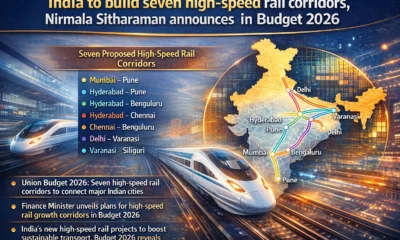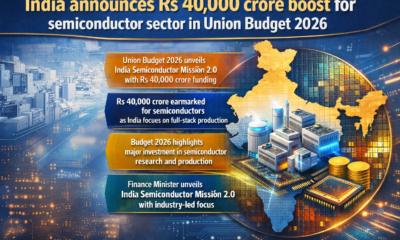India and China have agreed to expand their military ties and enhance interaction to ensure peace on the border and avoid Doklam-like standoffs that had strained relations between the two countries last year.
At a two-hour meeting between Defence Minister Nirmala Sitharaman and her Chinese counterpart Wei Fenghe, the two sides decided to work towards firming up a new bilateral pact on defence cooperation and agreed to increase interactions between their militaries at multiple levels,, said media reports quoting officials. The focus was to build mutual trust between the two armies guarding the 3,500-km border.
The two sides also decided on early operationalisation of the proposed hotline between the two armies as part of confidence-building measures, the defence ministry said.
Sitharaman reportedly talked about security challenges India has been facing because of cross-border terrorism, its views on bringing peace and stability in Afghanistan and the need for ensuring freedom of navigation and overflight in South China Sea, reported The Hindu, citing sources.
She also raised the issue of the $46 billion China-Pakistan Economic Corridor which is passing through Pakistan-occupied Kashmir, as she noted that it violates India’s sovereignty, sources said.
“It was decided to expand the engagement between the armed forces relating to training, joint exercises and other professional interactions. Both sides also decided to work towards a new bilateral Memorandum of Understanding (MoU) on defence exchanges and cooperation to replace the MoU signed in 2006,” Ministry of Defence said in a statement about the bilateral meeting.
To ensure peace and tranquillity on the border, both sides agreed on greater interactions at the working level, including operationalisation of the hotline between the relevant departments of the armed forces, the statement said.
The long-pending issue of a military hotline continues to hang fire as Indian Army has been maintaining that the hotline should be between its Director General of Military Operations (DGMOs) and his equivalent official in People’s Liberation Army (PLA). However, Beijing proposed that the deputy commander of its Chengdu-based Western Theatre Command would engage with the Indian DGMO.
“This meeting was for the exchange of ideas which we will progress in field during flag meetings,” sources said, adding that the idea for having greater interaction at all levels — at unit and brigade level — came from the Chinese. Officials from both countries will now work out a standard protocol for these meetings, sources said.
Sitharaman also said that border area development activities such as water supply and provision of electricity should not be seen with any doubt by the Chinese as this is being done for development, said a report in The Indian Express, quoting sources. The Chinese side said that it should not harm their interests in the border areas.
The two sides agreed that Doklam-like incidents should be handled with sensitivity, and handled with restraint, rationality and maturity. These incidents, the two ministers were said to have agreed, must be resolved by mutual discussion and interaction at all levels between the two armies. Both sides referred to the strategic communications issued to the two militaries following the informal summit between Prime Minister Narendra Modi and President Xi Jinping at Wuhan in April.
General Wei is on a four-day visit to India along with a 27-member delegation, comprising key military officials. These include Air Marshal Dingqui Chang, Vice Chief of the Central Military Commission, and Lt General Guiqing Rong, Vice commander of the Western Theatre Command which is responsible for the entire Chinese border with India. On Tuesday, General Fenghe had called on Prime Minister Modi who described India-China relations as a factor of stability in the world.


 India News21 hours ago
India News21 hours ago
 India News20 hours ago
India News20 hours ago
 India News10 hours ago
India News10 hours ago
 Cricket news10 hours ago
Cricket news10 hours ago
 India News9 hours ago
India News9 hours ago















